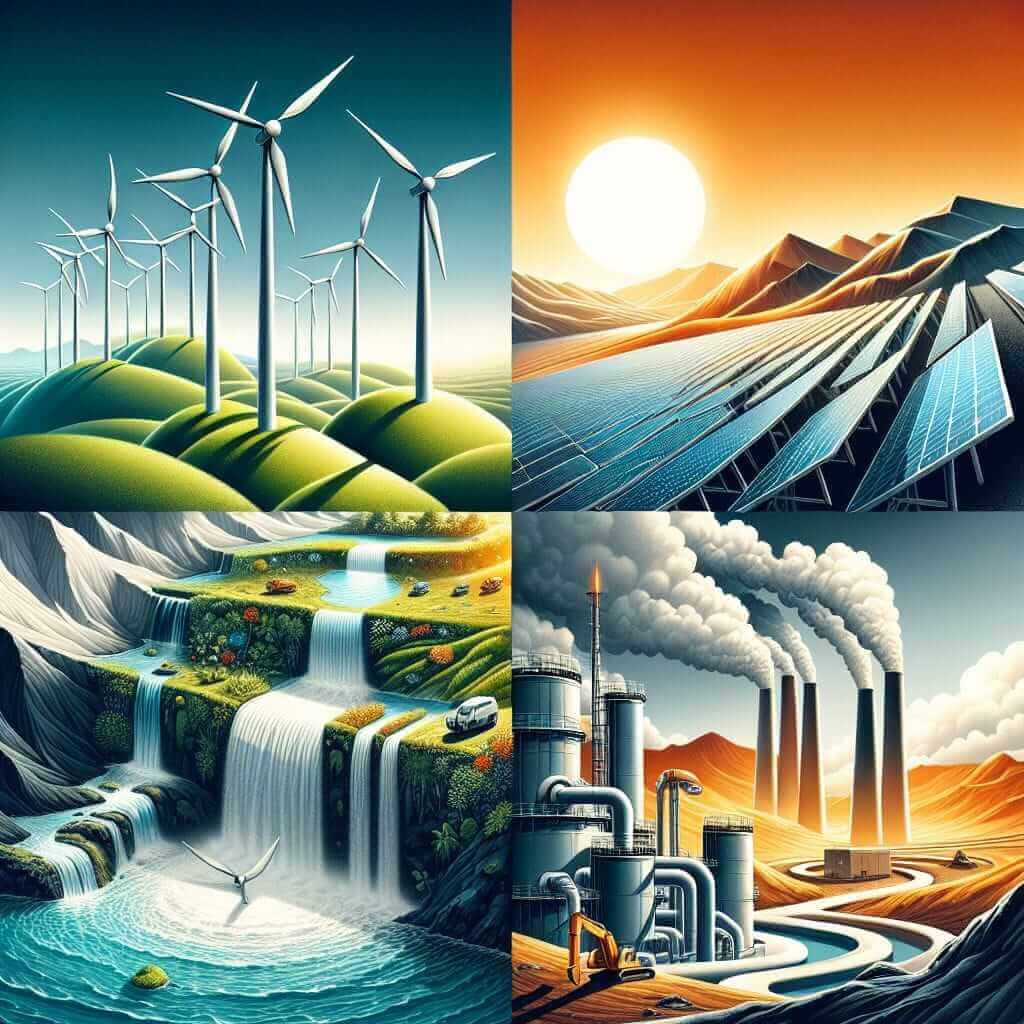Reading in the IELTS exam demands efficiency and accuracy, and a current and complex topic like the effects of renewable energy on global economic policies is highly plausible given its ongoing relevance. Over the past decade, energy transformation has shaped policies worldwide, leading to both economic opportunities and challenges.
This article will serve as a comprehensive guide and practice material for IELTS Reading. By exploring the impacts of renewable energy on global economic policies, we provide an example reading text, questions, answer keys, and critical language notes. This will help you sharpen your skills with insights from our 20+ years of teaching experience.
The Reading Passage
Renewable Energy and Global Economic Policies
Renewable energy sources, like solar, wind, and hydroelectricity, have become central to discussions on economic policies around the globe. Since the beginning of the 21st century, the push for sustainable energy has introduced significant changes in economic strategies for both developed and developing nations.
Shifts in Investment Patterns
Countries are reallocating substantial fiscal resources towards renewable energy projects. Investments in green energy have surged due to declining technology costs and an increased awareness of environmental issues. The International Energy Agency (IEA) reported that in 2021, renewable energy investments reached an unprecedented $365 billion, reflecting a global commitment to sustainable energy solutions.
Economic Diversification
Nations traditionally reliant on fossil fuels face the imperative to diversify their economies. For instance, Middle Eastern countries, rich in oil, are developing extensive solar power infrastructures. This shift is aimed at reducing economic volatility related to fluctuating oil prices and preparing for a post-oil era. Economies like Saudi Arabia and the UAE have charted plans to become regional hubs for renewable energy technologies.
Policy Reforms and Subsidies
Governments worldwide are introducing policy frameworks designed to promote renewable energy. Subsidies and tax incentives for renewable energy projects are commonplace, encouraging private sector participation. European countries have pioneered in this regard, offering substantial subsidies to expedite green energy development, which aligns with their commitment to the European Green Deal.
Challenges and Economic Disparities
While renewables offer numerous benefits, they also pose economic challenges, particularly for developing nations. The initial costs of transitioning to clean energy can be prohibitive without sufficient financial support from international bodies. Additionally, there is a disparity in renewable energy adoption rates between advanced economies and developing countries, which may exacerbate global economic inequalities.
Global Economic Integration
The push for renewable energy promotes international cooperation and economic integration. Countries work together on joint ventures, sharing technology, and expertise. This collaboration can lead to more stable international relations and contribute to global economic stability.

Practice Questions
Part One: Multiple Choice
-
According to the passage, what has primarily driven the increase in investments in renewable energy?
- A. Reduction in technology costs
- B. Increase in fossil fuel reserves
- C. Decreasing awareness of environmental issues
- D. Stabilizing oil prices
-
What sector is largely impacted by the shift to renewable energy in Middle Eastern countries?
- A. Technology
- B. Tourism
- C. Oil and Gas
- D. Agriculture
Part Two: True/False/Not Given
- Investments in renewable energy reached $400 billion in 2021.
- The European Green Deal primarily aims at fossil fuel exploration.
- International cooperation in renewable energy can lead to more stable international relations.
Part Three: Summary Completion
Complete the summary using the list of words in the box below.
Countries are reallocating substantial fiscal resources towards renewable energy projects, especially due to declining technology costs and increased 6. However, transitioning to renewable energy poses significant challenges for 7 regions due to prohibitive initial costs and lack of financial support. International cooperation on renewable energy projects promotes 8 and contributes to global economic stability.
Words: awareness, development, industrial, financial, economic integration, advanced, developing
Answer Keys and Explanations
Multiple Choice
- A. Reduction in technology costs
- The passage mentions that declining technology costs and increased awareness have driven renewable energy investments.
- C. Oil and Gas
- Middle Eastern countries are developing solar infrastructures to reduce reliance on oil.
True/False/Not Given
- False
- The passage states investments reached $365 billion, not $400 billion.
- False
- The European Green Deal focuses on promoting green energy, not fossil fuels.
- True
- The passage indicates that international cooperation can lead to stable international relations.
Summary Completion
- awareness
- Increased awareness of environmental issues is a driving force.
- developing
- Developing regions face significant challenges due to the cost of transitioning.
- economic integration
- International cooperation promotes economic integration.
Common Mistakes
- Misunderstanding large numbers and dates.
- Confusing “Not Given” with “False.”
- Overlooking key terms that indicate the writer’s point of view.
Vocabulary Enhancements
- Prohibitive (adj) /prəˈhɪbətɪv/ – too expensive to afford.
- Volatility (n) /ˌvɒləˈtɪləti/ – unpredictability and rapid change, often referring to financial markets.
- Fiscal (adj) /ˈfɪskəl/ – related to government revenue, especially taxes.
Grammar Note
Complex Sentences
- Structure: Main clause + subordinate clause
- Example: “Countries work together on joint ventures, sharing technology, and expertise.”
Conclusion
To excel in the IELTS Reading section, practice passages on current topics like renewable energy and economic policies are invaluable. Regularly engaging with complex texts will improve your comprehension and analytical skills.
For further reading, check out related topics on renewable energy on our site: challenges of implementing renewable energy policies, effects of climate change on renewable energy policies.
Stay dedicated to your practice, and approach each reading passage with strategic critical thinking to succeed in your IELTS exam.